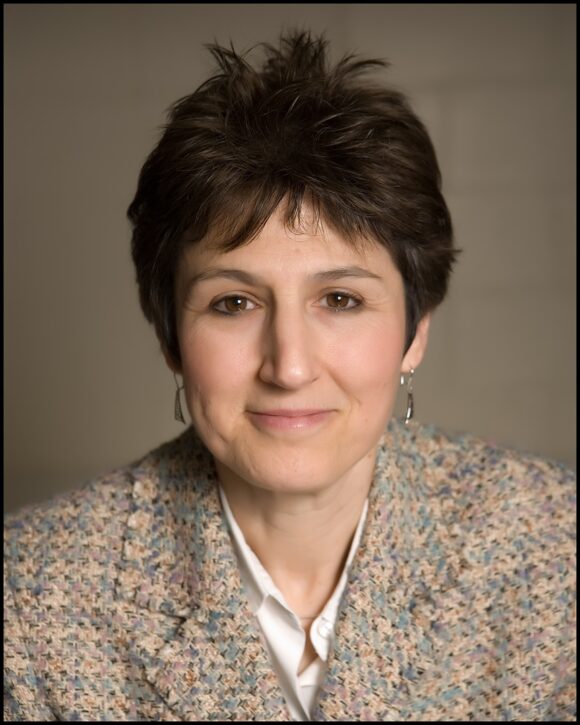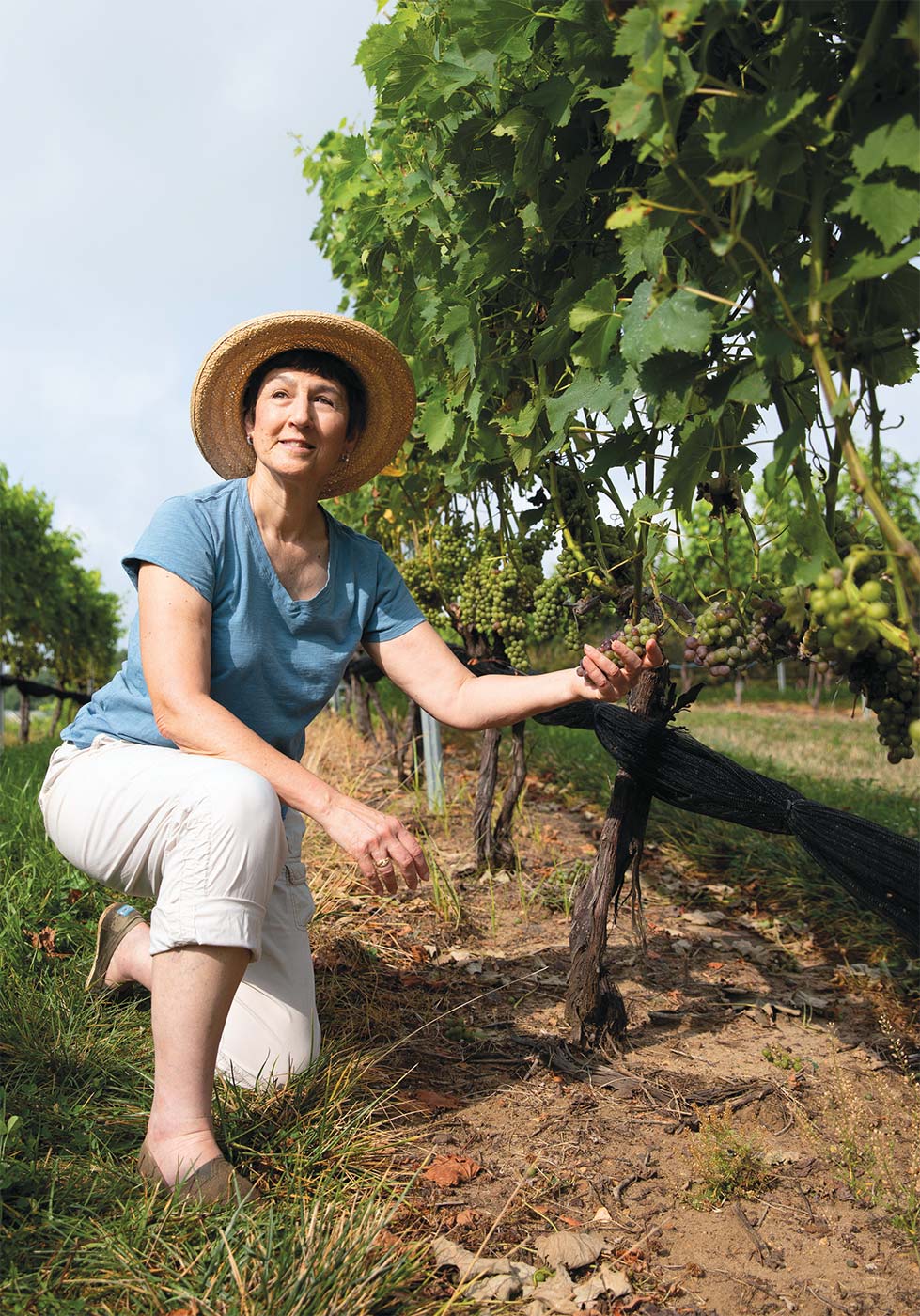
Professor of Food Science Beverly Tepper.
The future of NJ wine has a new force and Beverly Tepper, professor in the Department of Food Science where she directs the Sensory Evaluation Laboratory, is among the nine women featured in Edible Jersey.
The state seal of New Jersey, created in 1777, depicts Ceres, the Roman goddess of agriculture, holding a cornucopia overflowing with fruit grown in the state at that time. Most prominent are grapes. Today, more and more real women in the Garden State are raising grapes to prominence once more through wine growing, making, educating, and selling.
The state’s wine industry is booming—at last count there were more than 60 wineries and vineyards, many with tasting rooms, with more set to open in the next year—and the creative ferment has been highly welcoming to new talent. Women entering the industry are finding mentors, following in the footsteps of trailblazers, and discovering new programs to help them get started. They’re changing things rapidly themselves, too, as they join organizations and launch their own businesses. Here are just some of the leaders.
Beverly Tepper is The Tenacious Teacher

Beverly Tepper.
Putting classroom theory into real-world practice, Beverly Tepper, Ph.D. in nutrition and professor of sensory science at Rutgers, became a vineyard owner and winemaker in 2016. Tepper and husband Mark Pausch, a yeast molecular biologist, were “looking for the next chapter,” she says. Her academic specialty is the science of taste, and the couple’s compatible, wine-oriented skill sets, plus a piece of available agricultural property down the road from their house, inspired them to start developing Avventura vineyard and winery. Avventura’s central New Jersey location, in Allentown, hasn’t traditionally been the state’s wine country, but “there are vineyards popping up all over,” Tepper says. “It’s an extraordinary time to be involved in wine in New Jersey.”
Tepper is currently developing her vines and navigating the slow bureaucratic process of opening a winery in New Jersey, to be called Crosswicks Creek Winery; at the moment she can make wine only for personal use and is using her driveway as a crush pad. But along the way she’s found another hugely influential way to contribute to the wine industry in the state. There are “huge gaps in the workforce development in New Jersey,” she says. Unlike New York or Pennsylvania, the state had no college or graduate level viticulture or oenology programs. To meet this need, she launched a month-long summer Grape and Wine Science Certificate program through Rutgers, now in its second year, and over time hopes to develop the program into a regular credit offering to undergraduates or graduates. Like making wine, it’s not a process that happens overnight.
This article first appeared in Edible Jersey.

